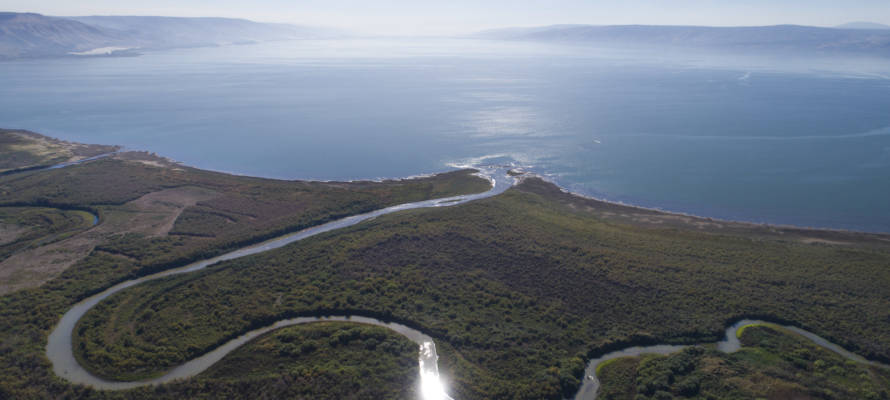The Sea of Galilee is likely to fill up completely as the heavy snows melt on the peak of Mount Hermon through the spring.
By United With Israel Staff
Weather that is seemingly more conducive for Israeli winters has spilled into April.
The good news is that this means rising water levels for Lake Kinneret, which is another name for the Bible’s Sea of Galilee and the country’s only freshwater source, according to the Environmental Protection Ministry.
Lake Kinneret has risen 15 centimeters since Thursday and is now 316 centimeters below its maximum level, says the Globes business news outlet, citing the Israel Water Authority. According to this report, the lake is likely to fill up completely as the heavy snows melt on the peak of Mount Hermon through the spring.
The lake had in recent years reached dangerously low levels.
Weather forecasters say that this has been an especially wet winter after several years of much smaller amounts of rainfall and even drought. Most of all, it helps the Israel’s water supplies and the livelihood of farmers. However, hikers have also benefited from the tremendous amount of colorful vegetation throughout the country.
The many previous dry winters prompted Israel to construct desalination plants.
Israel currently has eight plants, with the plant in Hadera, a city in the Haifa area in the north of Israel, being the largest seawater desalination plant in the world, according to Interesting Engineering. In 2015, 50% of Israel’s water for households, agriculture, and industry was from desalination, it says.
Still, experts say that desalination does not solve all of the problems caused by a lack of rainfall and even with conservation, so that Israeli authorities are relieved by the plentiful supply of precipitation this year.
With Passover and then summer vacation approaching, the rains will stop, but the benefits will remain amid hopes that the trend will continue in future winters.
